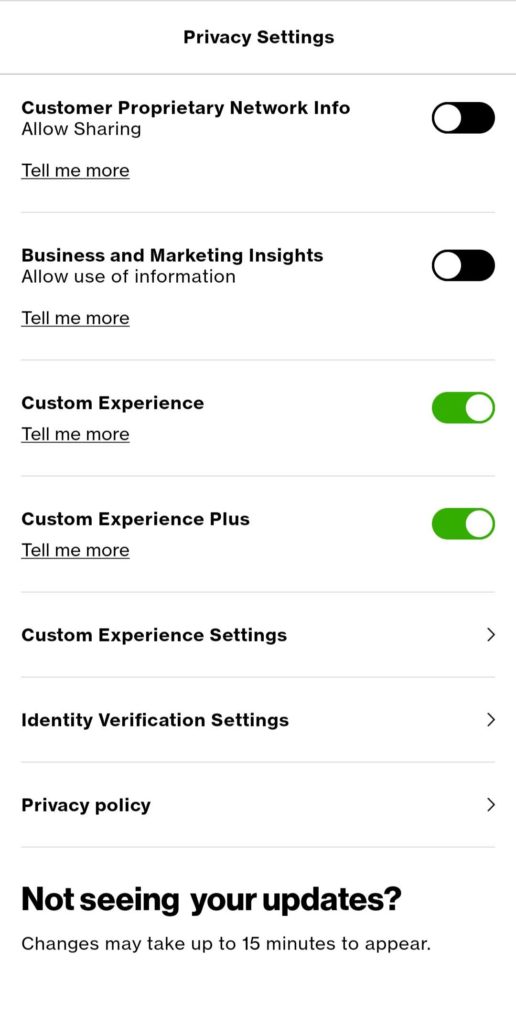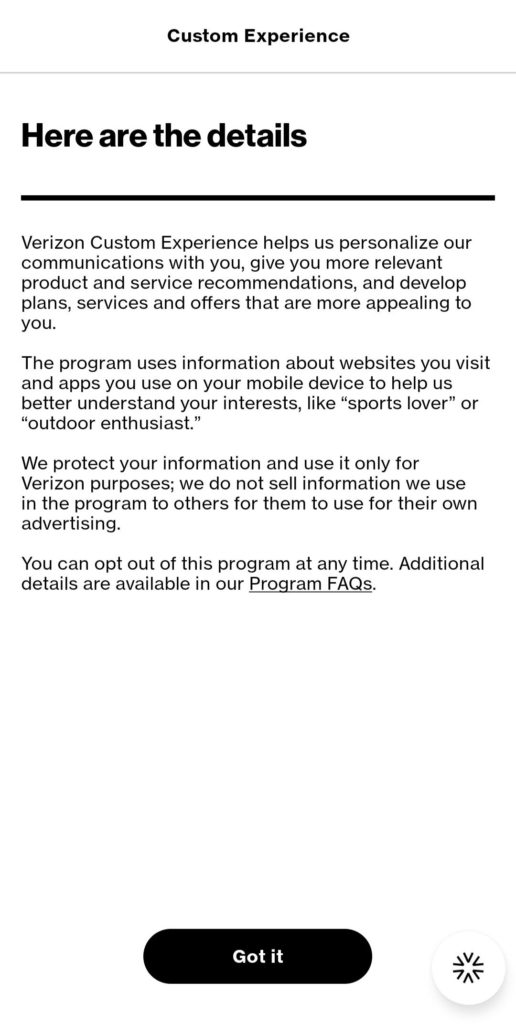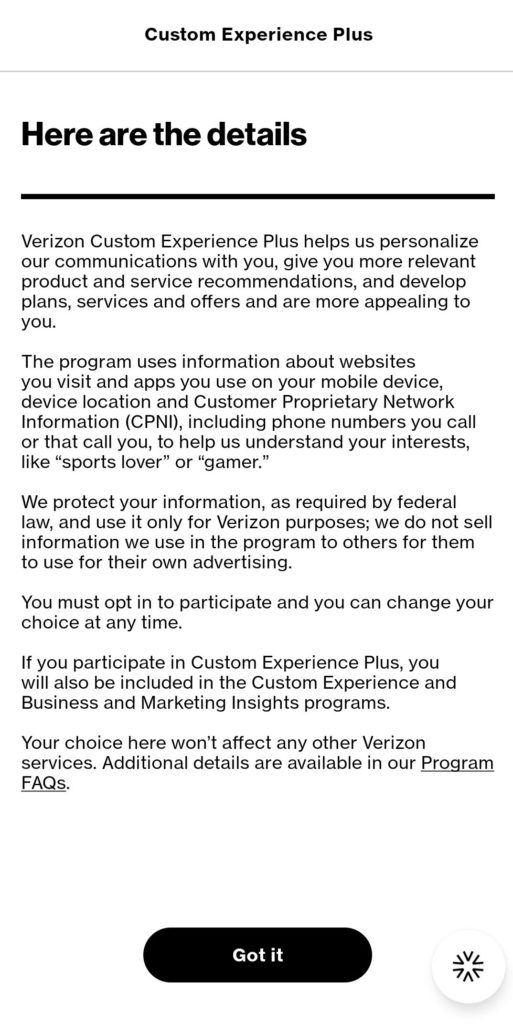
Over the past two weeks, Verizon—one of the most popular mobile phone carriers in the United States—has been exposed as auto-enrolling potentially over 100 million customers into content and behavior tracking technologies on the basis of offering more personalized communication, recommendations, and advertising. “Custom Experience” and “Custom Experience Plus” are two levels of tracking now performed by Verizon on unsuspecting customers.
As a Verizon customer, I quickly checked the privacy settings in the My Verizon app, and sure enough—I was automatically opted-in to the tracking programs. Interestingly enough, Verizon claims that “Custom Experience Plus” is an opt-in setting, but I seem to have been automatically enrolled in both even though I have no recollection of doing so.
These programs are especially alarming because they track a variety of information about Verizon subscribers: websites you visit, apps you use, your device’s location, and even people you call. Yikes! It’s not too much of a stretch to think that Verizon is collecting this data in near real-time and it’s even less of a stretch to imagine what could happen if this system were ever compromised. Attackers could conceivably find out where you bank online, what publications you read, and perhaps even your personal health conditions. With access to location data, hackers could determine where you live and work as well as your general schedule and weekly habits.
Clear, transparent opt-in gives individuals the necessary information to make an informed decision before allowing a third party to use their data, regardless of its sensitivity.
That’s not to say that you shouldn’t grant some of these capabilities to companies with which you do business. For example, Google and Apple both collect this type of information, but only after you opt-in. In return, they offer services like “find my phone,” so there’s a direct value-add to that opt-in decision. So far, I can’t see any benefit for allowing Verizon to have that sort of information.
Clear, transparent opt-in gives individuals the necessary information to make an informed decision before allowing a third party to use their data, regardless of its sensitivity. That’s one of the primary reasons that Rownd exists! Our goal is not to restrict organizations from collecting and using personal information, but we believe each person should understand how their data is collected, how it’s used, and who has access to it. When people feel that they are in control of their information, they’re much more likely to allow the collection of true, accurate, detailed first-party data. If they ever change their mind, they should be able to reverse their decision. We call this “revocable consent” and it’s at the very core of our mission to help organizations build trust through data privacy.
Personally, I value companies that respect my privacy, my rights, and my data—those that act with integrity. Verizon violated its customers’ trust by collecting extremely personal information without any consent whatsoever. Whether or not they apologize for this incident, that trust will be difficult to rebuild—it may take years. The good news for all of us is that this will further increase privacy awareness, will help everyday people make more informed decisions about their privacy, and will ultimately lead to a better internet—one where you and I can decide exactly how much of ourselves we want to share.
People illustration created by pikisuperstar – www.freepik.com



